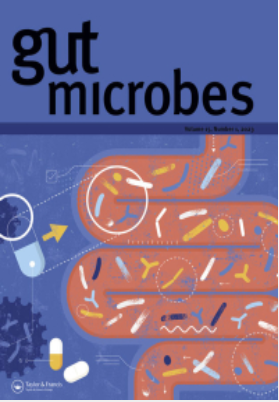饮食对肠道霉菌生物群的影响以及对炎症性肠病的潜在影响。
IF 12.2
1区 医学
Q1 GASTROENTEROLOGY & HEPATOLOGY
引用次数: 0
摘要
肠道微生物组是一个复杂而独特的实体,与常见胃肠道疾病的预防、发病机理和病情发展息息相关。虽然肠道微生物组主要由细菌群落主导,但先进的测序技术也发现了共同栖息的真菌群落,统称为真菌生物群。早期研究发现,肠道炎症与微生物组成的改变有关,即所谓的肠道菌群失调。微生物特征的改变与炎症性肠病(IBD)等多种病理疾病有关,但它们作为全身性炎症的原因或后果的作用仍是持续研究的主题。饮食在各种疾病的预防和治疗中起着至关重要的作用,被认为是全身性炎症的重要调节因素。本综述汇编了目前有关饮食调节对真菌生物群影响的文献,表明饮食变化可改变肠道的真菌结构。要了解饮食对肠道真菌的影响,包括真菌发酵所涉及的代谢途径和酶,还需要进一步的研究。此外,研究是否可以利用饮食调节肠道真菌生物群来治疗肠道疾病也是至关重要的。本文章由计算机程序翻译,如有差异,请以英文原文为准。
Effect of diet on the gut mycobiome and potential implications in inflammatory bowel disease.
The gut microbiome is a complex, unique entity implicated in the prevention, pathogenesis, and progression of common gastrointestinal diseases. While largely dominated by bacterial populations, advanced sequencing techniques have identified co-inhabiting fungal communities, collectively referred to as the mycobiome. Early studies identified that gut inflammation is associated with altered microbial composition, known as gut dysbiosis. Altered microbial profiles are implicated in various pathological diseases, such as inflammatory bowel disease (IBD), though their role as a cause or consequence of systemic inflammation remains the subject of ongoing research. Diet plays a crucial role in the prevention and management of various diseases and is considered to be an essential regulator of systemic inflammation. This review compiles current literature on the impact of dietary modulation on the mycobiome, showing that dietary changes can alter the fungal architecture of the gut. Further research is required to understand the impact of diet on gut fungi, including the metabolic pathways and enzymes involved in fungal fermentation. Additionally, investigating whether dietary modulation of the gut mycobiome could be utilized as a therapy in IBD is essential.
求助全文
通过发布文献求助,成功后即可免费获取论文全文。
去求助
来源期刊

Gut Microbes
Medicine-Microbiology (medical)
CiteScore
18.20
自引率
3.30%
发文量
196
审稿时长
10 weeks
期刊介绍:
The intestinal microbiota plays a crucial role in human physiology, influencing various aspects of health and disease such as nutrition, obesity, brain function, allergic responses, immunity, inflammatory bowel disease, irritable bowel syndrome, cancer development, cardiac disease, liver disease, and more.
Gut Microbes serves as a platform for showcasing and discussing state-of-the-art research related to the microorganisms present in the intestine. The journal emphasizes mechanistic and cause-and-effect studies. Additionally, it has a counterpart, Gut Microbes Reports, which places a greater focus on emerging topics and comparative and incremental studies.
 求助内容:
求助内容: 应助结果提醒方式:
应助结果提醒方式:


